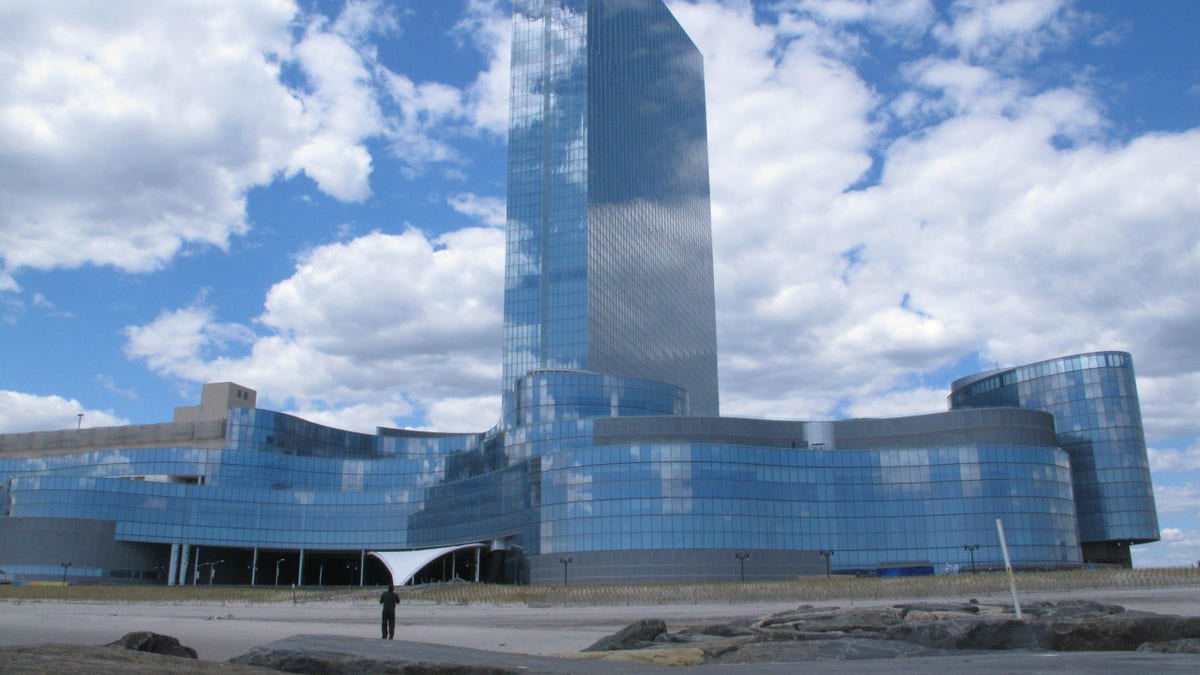
The Revel Casino is going under. Again. (AP File Photo)
In Atlantic City, NJ, an American capital of urban blight and unluckily busted-out casinos, the Revel stands as the waterfront town’s most jinxed gambling den.
It usually takes decades for casinos there to go out of business. Revel managed the feat in just two years. According to the Real Deal, it opened in 2012, went into bankruptcy twice, and permanently shut its doors in 2014.
Revel’s misfortune appeared to have created a sweet deal for South Florida real estate investor Glenn Straub. Things were going so badly in Atlantic City that he was able to pay just $82 million for a property that cost $2.4 billion to build.
But now he’s enduring what appears to be the Revel curse. “This state stinks,” he told the Star-Ledger last week, complaining about the slowness of New Jersey regulators and the difficulty of obtaining the necessary licenses that will allow him to get cards in the air and dice on the felt. “It just stinks . . . I worked in five states. This is 10 times worse than what it would be anyplace else.”
Star-crossed from the outset, construction on the short-lived hotel-casino began in 2005. That was when accountant-turned-law-enforcer-turned-casino-executive Kevin DeSanctis was given the opportunity to have his own gaming enterprise with Morgan Stanley as the backer.
Then, in for some $800 million, as the financial markets cratered in 2006, the Wall Street firm cooled on the casino. Morgan Stanley “was fighting for its life and this happened to be a pretty big cash drain,” DeSanctis told me back in 2012.
Rather than being stuck with a partially finished casino — which would have probably been torn down if left for dead — Morgan sunk in another $400 million, finished building the structure and enclosed it to protect against the elements.
